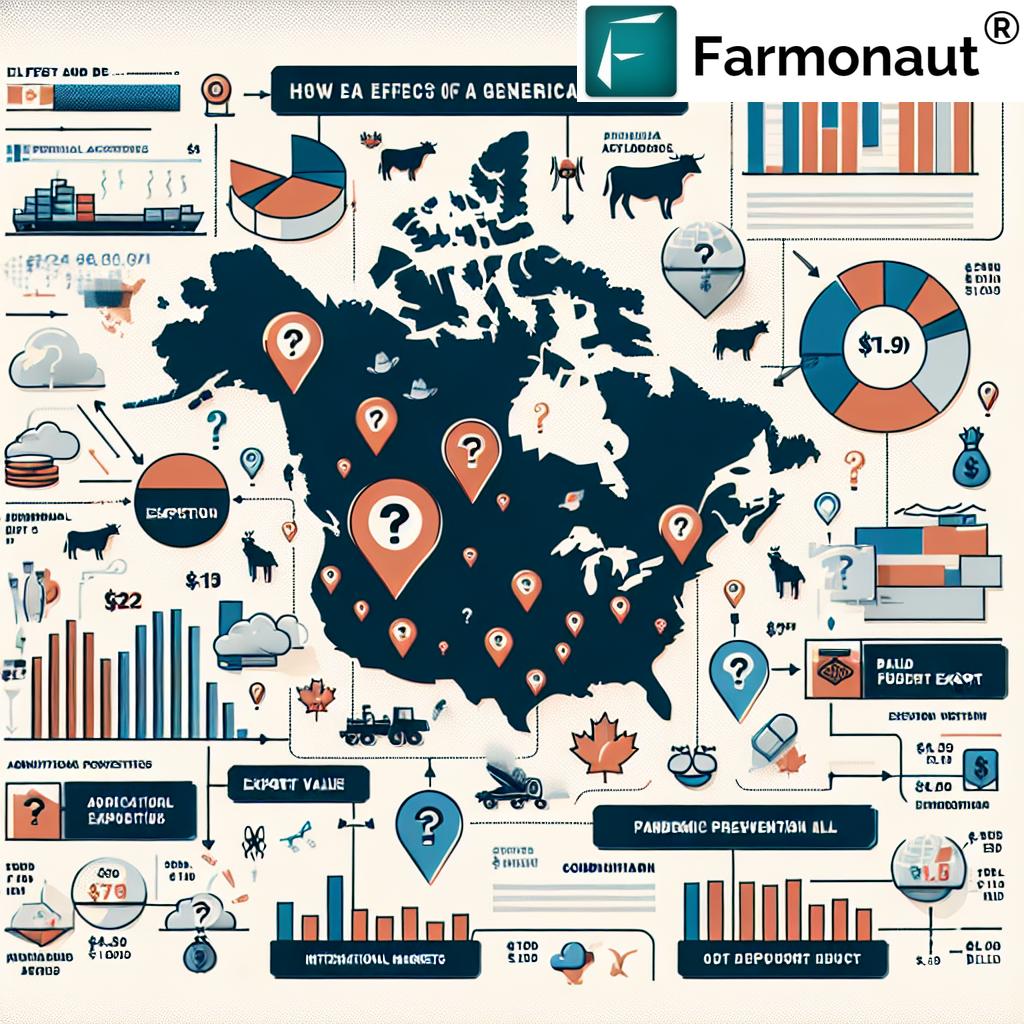Urgent: Alberta’s Livestock Industry Under Threat – Bill C-293 Sparks Controversy Over Food Security and Pandemic Preparedness

In a recent development that has sent shockwaves through Alberta’s agricultural community, the proposed federal Bill C-293, known as the Pandemic Prevention and Preparedness Act, has ignited a firestorm of controversy. This legislation, aimed at enhancing pandemic preparedness, has raised serious concerns about its potential impact on the province’s robust livestock industry and overall food security.
The Crux of the Controversy
At the heart of this Canadian agri-food sector controversy lies a clause in Bill C-293 that would grant the federal government the power to “regulate commercial activities that can contribute to pandemic risk, including industrial animal agriculture.” This provision has set off alarm bells among Alberta’s farmers, ranchers, and agricultural stakeholders, who fear it could lead to unprecedented federal overreach into provincial jurisdiction.
RJ Sigurdson, Alberta’s Minister of Agriculture and Irrigation, voiced these concerns in a recent press conference, stating, “If the bill passes through the Senate, the federal government would have the discretionary power to allow public health officials to shut down facilities like livestock operations and meat processing plants without clear objective criteria.” This statement underscores the Alberta livestock industry threat posed by the bill’s current language.
Economic Implications for Alberta
- Alberta’s agri-food exports were valued at a staggering $17.9 billion in 2023
- The bill could potentially deter investment in the province’s agricultural sector
- Concerns about the impact on producer and processor livelihoods
The economic stakes are high for Alberta, a province renowned for its agricultural prowess. The potential Bill C-293 food security impact extends beyond the farm gate, threatening to disrupt supply chains and potentially increasing food costs for consumers. As a leader in agri-food exports, Alberta stands to lose significantly if the bill passes without amendments.

The Push for Science-Based Pandemic Preparedness
While the Alberta government supports the principle of pandemic preparedness, it emphasizes the need for a science-based approach. Minister Sigurdson stated, “Alberta supports pandemic preparedness based on science, but we will always stand up for our industry leaders when policies inappropriately threaten their viability, and we will always stand up for our constitutional jurisdiction.”
This stance highlights the delicate balance between pandemic risk reduction and maintaining a thriving agricultural sector. The government’s position underscores the importance of evidence-based agricultural regulation that doesn’t unnecessarily burden farmers and ranchers.
Biosecurity Risks and Industry Concerns
The livestock biosecurity risks legislation aspect of Bill C-293 has drawn particular scrutiny. Industry leaders from Alberta Chicken Producers, Alberta Beef Producers, and Alberta Pork have voiced their apprehensions about the potential overreach of federal authorities in managing on-farm biosecurity.
These concerns highlight the need for a nuanced approach to pandemic preparedness agricultural regulation that acknowledges the existing biosecurity measures already in place on Alberta farms. The industry argues that farmers are already vigilant about biosecurity risks and that additional federal oversight could be redundant or even counterproductive.
The Path Forward: Calls for Amendment and Consultation
As the bill progresses through the Senate, there are growing calls for amendments and increased consultation with provincial stakeholders. Minister Sigurdson has reached out to Alberta’s senators, the federal Minister of Agriculture and Agri-food, and relevant federal departments to request changes to the bill.
The federal pandemic bill Alberta impact has become a rallying point for those advocating for provincial autonomy in agricultural matters. Alberta’s Health Minister, Adriana LaGrange, emphasized this point, stating, “Alberta will make decisions about responding to public health emergencies in a way that best serves Albertans, not the federal government.”
The Role of Technology in Modern Agriculture
Amidst these legislative challenges, it’s worth noting the critical role that technology plays in modern agriculture. Tools like Farmonaut’s satellite-based crop monitoring system are helping farmers optimize their operations and enhance food security. These innovations demonstrate the industry’s commitment to efficiency and sustainability, even in the face of regulatory uncertainties.
For farmers looking to leverage cutting-edge technology in their operations, consider exploring:
- Farmonaut’s Satellite API for real-time agricultural insights
- API Developer Docs for integration into existing farm management systems
Looking Ahead: The Future of Alberta’s Agriculture
As the debate over Bill C-293 continues, the future of Alberta’s agriculture sector hangs in the balance. The outcome of this legislative process will have far-reaching implications for farmers, processors, and consumers alike. It will also set a precedent for how Canada approaches the delicate balance between pandemic preparedness and agricultural prosperity.
The controversy surrounding Bill C-293 serves as a reminder of the complex interplay between federal and provincial jurisdictions in Canada’s agricultural landscape. As stakeholders on all sides of the debate continue to make their voices heard, the hope is that a solution can be found that addresses pandemic concerns while preserving the vitality of Alberta’s agricultural sector.
Conclusion: A Call for Balanced Approach
The ongoing debate over Bill C-293 highlights the need for a balanced approach to pandemic preparedness that doesn’t come at the expense of Canada’s vital agricultural sector. As discussions continue, it’s crucial that policymakers consider the following:
- The economic importance of Alberta’s livestock industry to the province and the nation
- The existing biosecurity measures and industry-led initiatives already in place
- The potential impact on food security and consumer prices
- The constitutional division of powers between federal and provincial governments
As this situation unfolds, farmers and agricultural stakeholders are encouraged to stay informed and engaged in the legislative process. By working together and leveraging modern agricultural technologies, the industry can navigate these challenges and emerge stronger, more resilient, and better prepared for future crises.
Stay tuned for further updates on this developing story and its implications for Alberta’s agricultural future.


